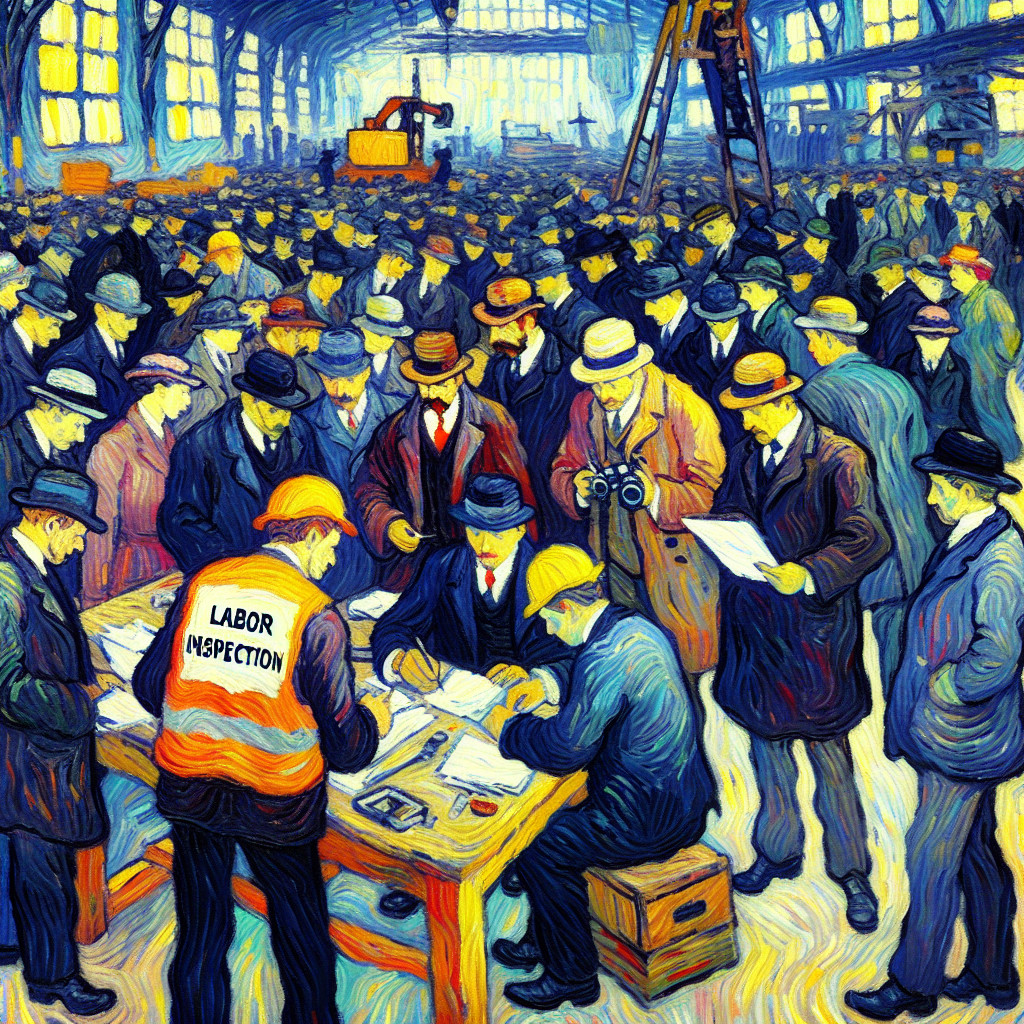Labour inspection, also known as workplace inspection or occupational health and safety inspection, is a crucial aspect of ensuring safe and fair working conditions for employees. It involves the systematic examination and evaluation of workplaces to identify and address any potential hazards, violations of labour laws, or non-compliance with health and safety regulations. The primary objective of labour inspection is to protect workers’ rights, promote decent work, and prevent accidents, injuries, and illnesses in the workplace. This introduction provides a brief overview of the importance and purpose of labour inspection in safeguarding the well-being of workers.
The Importance of Labour Inspection in Ensuring Workplace Safety

Labour inspection plays a crucial role in ensuring workplace safety. It is a vital component of any effective labor administration system, as it helps to protect workers’ rights and prevent occupational hazards. By conducting regular inspections, labor inspectors can identify potential risks and take necessary measures to mitigate them. This article will discuss the importance of labor inspection in ensuring workplace safety and the various ways in which it contributes to a safe and healthy working environment.
Firstly, labor inspection helps to enforce compliance with labor laws and regulations. Inspectors are responsible for monitoring workplaces to ensure that employers are adhering to the prescribed safety standards. They assess the working conditions, machinery, equipment, and overall safety measures in place. By doing so, they can identify any violations and take appropriate actions to rectify them. This not only protects workers from potential harm but also ensures that employers are held accountable for providing a safe working environment.
Furthermore, labor inspection plays a crucial role in preventing accidents and injuries. Inspectors are trained to identify potential hazards and assess the level of risk they pose to workers. They can identify issues such as faulty machinery, inadequate safety measures, or improper handling of hazardous substances. By addressing these issues promptly, labor inspectors can prevent accidents and injuries from occurring in the first place. This proactive approach to workplace safety is essential in reducing the number of workplace accidents and protecting workers’ well-being.
In addition to preventing accidents, labor inspection also helps to promote health and well-being in the workplace. Inspectors assess factors such as ventilation, lighting, and ergonomics to ensure that workers are not exposed to conditions that may negatively impact their health. They also check for compliance with health and hygiene regulations, such as the provision of clean drinking water and sanitary facilities. By ensuring that these basic requirements are met, labor inspectors contribute to creating a healthy and comfortable working environment for employees.
Labor inspection also plays a crucial role in addressing issues related to workers’ rights. Inspectors are responsible for ensuring that workers are not subjected to unfair treatment, discrimination, or exploitation. They monitor compliance with labor laws regarding working hours, wages, and benefits. By doing so, they protect workers from exploitation and ensure that they receive fair and just treatment in the workplace. This aspect of labor inspection is essential in upholding workers’ rights and promoting social justice.
Lastly, labor inspection contributes to the overall improvement of workplace safety standards. By conducting regular inspections and identifying areas for improvement, labor inspectors provide valuable feedback to employers and employees. They can recommend changes in safety procedures, training programs, or equipment to enhance workplace safety. This continuous feedback loop helps to create a culture of safety in the workplace, where both employers and employees are actively engaged in ensuring a safe working environment.
In conclusion, labor inspection is of utmost importance in ensuring workplace safety. It helps to enforce compliance with labor laws, prevent accidents and injuries, promote health and well-being, protect workers’ rights, and improve overall safety standards. By conducting regular inspections and taking necessary actions, labor inspectors play a vital role in creating a safe and healthy working environment for all employees.In conclusion, labour inspection plays a crucial role in ensuring compliance with labour laws and regulations. It helps protect workers’ rights, promotes safe and healthy working conditions, and contributes to fair and equitable employment practices. Through inspections, violations can be identified and addressed, leading to improved working conditions and overall worker well-being.




